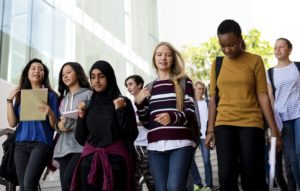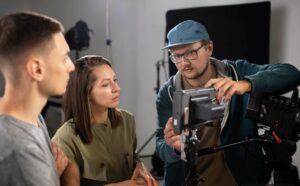I want to chat about something that’s been on my mind lately: History IA—Historical Investigation Topic Ideas. When I was prepping my own project, I was swamped with a ton of history ia ideas that looked both intriguing and a bit nerve-wracking.
I sifted through heaps of history ia topics and ib history ia ideas that could really set your work apart, and I figured I’d pass on some of the cool suggestions that made my project way less stressful. I even found some rad history ia questions that totally changed the way I thought about approaching my research.
Whether you’re on the hunt for ia ideas history that are straightforward to start with or if you’re after some challenging ib history ia topics to keep things exciting, trust me, there’s something for every kind of project. I remember stumbling on a list of easy history ia ideas along with some legit ib history ia examples, and it was like finding a cheat sheet that spoke my language.
I also dug up a bunch of solid history ia research questions that broke the process down into steps I could actually manage. Even though it might seem like a lot at first, I found that mixing a few of my top hl history ia ideas with other ia history ideas really boosted my confidence and made the workload feel way more doable.
History IA Topic Ideas
I’m here to share what worked for me and hopefully help you see that even if the options seem endless, there’s a way to make them work for your style and interests. So let’s get into it and check out some of these suggestions together!
1. The Effectiveness of Propaganda during World War II
- RQ1: To what extent did Nazi propaganda influence public opinion in Germany between 1933 and 1945?
Overview: Examine primary sources such as posters, speeches, and film reels alongside secondary analyses to assess the propaganda’s impact on society. - RQ2: How did British propaganda shape civilian morale during the Blitz (1940–1941)?
Overview: Analyze radio broadcasts, newspaper articles, and government communications to evaluate how propaganda maintained public resilience. - RQ3: In what ways did American wartime propaganda contribute to national unity during World War II (1941–1945)?
Overview: Investigate the use of posters, films, and public service announcements to understand the mechanisms of rallying support for the war effort.
2. The Impact of the Treaty of Versailles on Post-War Germany
- RQ1: How did the punitive measures of the Treaty of Versailles contribute to political instability in Weimar Germany (1919–1933)?
Overview: Use economic data, political speeches, and contemporary critiques to explore links between treaty conditions and political turmoil. - RQ2: To what extent did the economic reparations imposed by the Treaty exacerbate hyperinflation in Germany during the 1920s?
Overview: Compare economic records and scholarly studies to evaluate the treaty’s economic impact on everyday life. - RQ3: How did territorial losses mandated by the Treaty of Versailles affect the rise of German nationalism?
Overview: Analyze maps, political debates, and nationalistic propaganda to assess the role of lost territories in national sentiment.
3. Decolonization in Africa: The Case of Algeria
- RQ1: How did French colonial policies contribute to the outbreak of the Algerian War of Independence (1954–1962)?
Overview: Investigate colonial administrative documents, local accounts, and French governmental records to trace causation. - RQ2: In what ways did Cold War dynamics influence French decision-making during Algeria’s decolonization?
Overview: Examine diplomatic correspondence and international news reports to understand external influences on colonial policy. - RQ3: How did the outcomes of the Algerian War shape subsequent decolonization movements in North Africa?
Overview: Compare Algeria’s liberation with other regional movements through secondary literature and oral histories.
4. The Cold War’s Impact on Latin America: The Cuban Revolution
- RQ1: How did U.S. foreign policy contribute to the emergence of the Cuban Revolution (1953–1959)?
Overview: Analyze diplomatic archives and contemporary media to investigate the interplay between U.S. actions and revolutionary sentiment. - RQ2: In what ways did the Cuban Revolution transform socio-political structures in Cuba during the early 1960s?
Overview: Use government documents, memoirs, and academic studies to evaluate the revolution’s domestic impact. - RQ3: To what extent was the Cuban Revolution a response to longstanding colonial legacies and economic disparities?
Overview: Compare pre-revolutionary colonial policies with revolutionary reforms by drawing on historical texts and economic data.
5. The Role of Leadership in Political Movements: The Example of Mahatma Gandhi
- RQ1: How did Gandhi’s philosophy of non-violence influence the strategies of the Indian independence movement from 1915 to 1947?
Overview: Examine Gandhi’s writings, speeches, and contemporary reactions to assess the practical impact of his ideas. - RQ2: In what ways did Gandhi’s leadership style shape the methods and outcomes of the Indian National Congress?
Overview: Utilize primary sources from party records and personal correspondences to explore internal decision-making processes. - RQ3: How did British colonial responses to Gandhi’s non-violent tactics affect the pace and nature of India’s decolonization?
Overview: Investigate governmental debates and media portrayals from both British and Indian perspectives.
6. The Historiography of the Holocaust
- RQ1: How have scholarly interpretations of the Holocaust evolved from the 1960s to the present day?
Overview: Conduct a literature review of key texts and historiographical debates to trace shifts in understanding and methodology. - RQ2: In what ways did early survivor testimonies influence subsequent historical narratives of the Holocaust?
Overview: Analyze oral histories and memoirs alongside later academic studies to assess their lasting impact. - RQ3: To what extent has the digital era transformed the accessibility and analysis of Holocaust primary sources?
Overview: Examine the role of digital archives and online exhibitions in shaping contemporary Holocaust studies.
7. The Impact of Economic Sanctions on International Conflicts: The Case of Iran
- RQ1: How effective have international economic sanctions been in altering Iran’s nuclear policy from 2005 to 2020?
Overview: Review diplomatic records, economic data, and expert analyses to evaluate policy shifts and their catalysts. - RQ2: To what extent have economic sanctions impacted the daily lives of Iranian citizens?
Overview: Use economic reports, personal testimonies, and journalistic sources to explore socio-economic consequences. - RQ3: How have Iranian domestic policies adapted in response to prolonged international sanctions?
Overview: Analyze governmental policy documents, internal reforms, and scholarly critiques to understand strategic adaptations.
8. Nationalism and the Breakup of Yugoslavia
- RQ1: How did nationalist rhetoric contribute to the political fragmentation in Yugoslavia during the 1990s?
Overview: Analyze speeches, media coverage, and political manifestos to assess how nationalist language fueled division. - RQ2: In what ways did historical grievances exacerbate ethnic tensions leading to the Yugoslav Wars?
Overview: Examine historical narratives, archival documents, and interviews to understand the roots of conflict. - RQ3: To what extent did international intervention modify the course of nationalist conflicts in the former Yugoslavia?
Overview: Use UN reports, diplomatic cables, and contemporary news articles to evaluate the impact of external forces.
9. The Influence of Digital Media on Modern Historical Narratives
- RQ1: How has digital media transformed access to primary historical sources in the 21st century?
Overview: Research digital archives, online databases, and academic journals to evaluate increased accessibility and its implications. - RQ2: In what ways do social media platforms influence public perceptions of historical events?
Overview: Analyze case studies, user-generated content, and media analysis to trace the formation of digital historical narratives. - RQ3: To what extent has the rise of digital tools altered traditional methods of historical research and scholarship?
Overview: Compare pre- and post-digital research methodologies by reviewing academic literature and case studies.
10. The Role of Women in Revolutionary Movements: A Comparative Study
- RQ1: How did female leadership impact the strategies of the French Revolution (1789–1799)?
Overview: Examine personal correspondences, memoirs, and revolutionary records to analyze women’s contributions and leadership roles. - RQ2: In what ways did the roles of women differ between the Russian Revolution and the Chinese Revolution?
Overview: Compare primary documents, feminist critiques, and historical narratives to reveal contrasting experiences and influences. - RQ3: To what extent have historical narratives marginalized the contributions of women in revolutionary movements?
Overview: Investigate secondary literature and historiographical debates to discuss gender bias in historical accounts.
11. The Cultural Impact of the Black Civil Rights Movement in the United States
- RQ1: How did media portrayals of the Civil Rights Movement influence public opinion in the 1960s?
Overview: Analyze television broadcasts, newspaper editorials, and propaganda materials to assess media’s role in shaping perceptions. - RQ2: To what extent did grassroots activism contribute to legislative changes during the Civil Rights era?
Overview: Use interviews, archival footage, and government records to connect activism with policy outcomes. - RQ3: How has the historiography of the Civil Rights Movement evolved over the past fifty years?
Overview: Review academic texts and public commemorations to explore shifts in historical interpretation and collective memory.
12. The Role of Espionage in Shaping Cold War Politics
- RQ1: How did covert intelligence operations influence diplomatic relations between the U.S. and the USSR during the Cold War?
Overview: Examine declassified documents, memoirs of intelligence officers, and diplomatic correspondences to assess operational impacts. - RQ2: In what ways did espionage affect the outcome of key crises, such as the Cuban Missile Crisis?
Overview: Analyze case studies and primary sources to understand how intelligence shaped crisis management. - RQ3: How have the revelations from declassified documents reshaped our understanding of Cold War espionage?
Overview: Compare historical narratives before and after major document releases to highlight shifts in scholarly interpretations.
13. The Impact of the Vietnam War on International Perceptions of Warfare
- RQ1: How did media coverage of the Vietnam War alter global perceptions of military intervention?
Overview: Evaluate news footage, photojournalism, and international broadcasts to understand the role of media in war reporting. - RQ2: In what ways did the Vietnam War prompt changes in U.S. military strategy and public policy?
Overview: Analyze governmental documents, military analyses, and post-war studies to assess strategic shifts. - RQ3: To what extent has the legacy of the Vietnam War influenced later conflicts in Southeast Asia?
Overview: Use comparative studies and regional analyses to trace long-term impacts on military and political practices.
14. The Influence of Colonialism on Modern Political Boundaries in Africa
- RQ1: How did European colonial administrative practices contribute to the formation of contemporary political boundaries in Sub-Saharan Africa?
Overview: Examine colonial maps, administrative records, and post-independence critiques to connect historical policies with current borders. - RQ2: In what ways have colonial-era border delineations influenced post-independence conflicts in Africa?
Overview: Investigate case studies, conflict analyses, and diplomatic records to understand the legacy of artificial boundaries. - RQ3: To what extent did colonial land management practices affect socio-political structures in modern African states?
Overview: Compare pre-colonial, colonial, and post-colonial land policies using archival research and secondary literature.
15. The Role of International Organizations in Post–World War II Reconstruction
- RQ1: How effective was the Marshall Plan in rebuilding war-torn Europe between 1947 and 1952?
Overview: Analyze economic data, governmental reports, and contemporary critiques to assess the plan’s reconstruction impact. - RQ2: In what ways did the United Nations contribute to establishing frameworks for international reconstruction after WWII?
Overview: Examine UN resolutions, peacekeeping records, and scholarly analyses to evaluate the organization’s role. - RQ3: How did international aid influence Japan’s economic recovery following World War II?
Overview: Use economic reports, policy analyses, and historical narratives to draw connections between aid and rapid post-war recovery.
16. The Historical Evolution of Human Rights Discourses
- RQ1: How did the adoption of the Universal Declaration of Human Rights in 1948 reshape global human rights norms?
Overview: Investigate primary documents, international reactions, and subsequent legal reforms to assess its impact. - RQ2: In what ways have human rights discourses evolved from the Cold War era to the present day?
Overview: Compare academic and governmental analyses from different eras to trace continuity and change in human rights ideologies. - RQ3: To what extent did historical events, such as apartheid in South Africa, influence international human rights policies?
Overview: Analyze case studies, policy documents, and scholarly debates to evaluate the transformative effects of such events.
17. The Impact of Transportation Innovations on 20th-Century Warfare
- RQ1: How did the advent of mechanized warfare influence battle strategies during World War I?
Overview: Research military strategies, technological developments, and battle outcomes using wartime records and military histories. - RQ2: In what ways did advancements in transportation technology shape logistics in World War II?
Overview: Examine technical reports, logistical data, and case studies to highlight the role of innovations in military efficiency. - RQ3: To what extent did innovations in military transport impact the outcome of conflicts during the Cold War?
Overview: Use comparative analyses of different conflicts, military documents, and technological histories to draw conclusions.
18. The Legacy of the Ottoman Empire in Shaping Modern Middle Eastern Borders
- RQ1: How did Ottoman administrative divisions influence the formation of modern Middle Eastern nation-states?
Overview: Examine archival maps, administrative records, and historiographical debates to trace the evolution of borders. - RQ2: In what ways did the dissolution of the Ottoman Empire contribute to subsequent regional conflicts?
Overview: Analyze primary sources from the early 20th century and secondary analyses to understand the connection between empire dissolution and conflict. - RQ3: To what extent have Ottoman policies continued to affect modern nation-building processes in the Middle East?
Overview: Compare historical policies with contemporary political structures using both archival research and modern analyses.
19. The Role of Public Memory in Commemorating Historical Conflicts
- RQ1: How do public memorials influence collective memory of World War I in Europe?
Overview: Study the design, location, and commemorative practices of memorials alongside public opinion surveys and cultural analyses. - RQ2: In what ways do national narratives shape the remembrance of the Vietnam War in the United States?
Overview: Analyze textbooks, monuments, and media representations to assess how collective memory is constructed and contested. - RQ3: To what extent have changing public memories of the Cold War altered contemporary historical interpretations?
Overview: Compare different eras’ representations of the Cold War through interviews, media studies, and academic historiography.
20. The Intersection of Technology and Warfare: Cyber Warfare in Historical Context
- RQ1: How have advances in communication technologies influenced warfare strategies from the 20th century to today?
Overview: Trace technological developments alongside military doctrines through archival research and case studies. - RQ2: In what ways did early instances of electronic warfare serve as precursors to modern cyber conflicts?
Overview: Identify and analyze documented cases of electronic warfare, comparing them with contemporary cyber tactics. - RQ3: To what extent can historical developments in information technology be linked to current trends in cyber warfare?
Overview: Investigate the evolution of technology in military contexts by combining technical histories with strategic analyses.
Final Thoughts
To wrap things up, I hope this rundown on History IA—Historical Investigation Topic Ideas gives you a fresh outlook and clears up some of the fuzziness around picking the right angle. I totally get that sorting through a pile of history ia topics and ib history ia ideas can be a bit overwhelming, but trust me when I say that a good list of history ia questions can turn the whole project into something way more manageable.
I found that blending a few of my favorite ia ideas history with some straightforward easy history ia ideas made all the difference. Mixing in some solid ib history ia topics and crisp history ia research questions not only kept my work interesting but also helped me keep things organized.
So if you ever feel bogged down by too many choices, remember that there’s a ton of hl history ia ideas and other ia history ideas out there that can help you reframe your perspective.
Keep it chill, experiment with different approaches, and let your curiosity lead the way. I’m excited for you to try these out and find what clicks best with your vibe!








